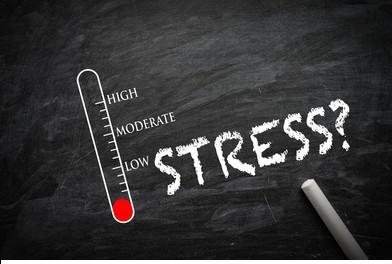Written by: Segun Akomolafe
In today’s fast-paced world, stress and anxiety have become unwelcome companions for many of us. From work pressures to personal responsibilities, the demands of modern life can take a significant toll on your mental and physical wellbeing.
The good news is that effective stress management techniques are accessible to everyone. This comprehensive guide explores twenty practical, science-backed strategies to help you with stress management and anxiety relief.
Understanding Stress and Anxiety
Before diving into relief strategies, it’s important to understand what you’re dealing with. Stress is your body’s natural response to pressure or threats, triggering the “fight-or-flight” response that once helped our ancestors survive. Anxiety, meanwhile, is the mind and body’s reaction to stressful, dangerous, or unfamiliar situations, characterized by feelings of unease and worry.
While occasional stress is normal, chronic stress can lead to serious health issues including heart disease, depression, digestive problems, and weakened immune function. Recognizing when you’re experiencing unhealthy levels of stress is the first step toward managing it effectively.

Physical Approaches to Stress Relief
Here are the best stress management and anxiety relief techniques for your healthy well-being:
1. Practice Deep Breathing
When you’re stressed, your breathing becomes shallow and rapid. Deep breathing counters this by activating your parasympathetic nervous system, which controls relaxation.
Try this simple technique: Inhale slowly through your nose for a count of four, hold for two counts, then exhale through your mouth for six counts. Even just five minutes of deep breathing can significantly reduce stress levels. You can practice this anywhere – at your desk, in traffic, or before an important meeting.
2. Engage in Regular Physical Exercise
Exercise isn’t just beneficial for your physical health; it’s a powerful stress reliever too. When you exercise, your brain releases endorphins – natural mood elevators that can create feelings of happiness and euphoria.
You don’t need to train for a marathon to experience these benefits. A 30-minute walk, a quick bike ride, or a dance session in your living room can all help reduce stress levels. The key is consistency – aim for at least 150 minutes of moderate activity each week.
3. Prioritize Quality Sleep
Sleep and stress have a bidirectional relationship: stress can disrupt sleep, and poor sleep increases stress. Breaking this cycle is crucial for your wellbeing.
Improve your sleep by establishing a consistent bedtime routine. Aim to go to bed and wake up at the same time each day. Create a sleep-conducive environment by keeping your bedroom dark, quiet, and cool. Limit screen time before bed, as the blue light from devices can interfere with your natural sleep-wake cycle.
4. Try Progressive Muscle Relaxation
This technique involves tensing and then relaxing different muscle groups in sequence. Start with your toes and work up to your head. Tense each muscle group for 5-10 seconds, then release and notice the sensation of relaxation. This practice helps you recognize the difference between tension and relaxation, giving you greater control over your physical stress response.
5. Optimize Your Nutrition
What you eat significantly impacts how you feel. A diet high in processed foods, sugar, and caffeine can exacerbate stress, while nutrient-rich foods can help manage it.
Focus on incorporating complex carbohydrates (like whole grains), lean proteins, fruits, vegetables, and healthy fats into your diet. These foods provide sustained energy and the nutrients your body needs to cope with stress. Also, remember to stay hydrated, as even mild dehydration can affect your mood and energy levels.
6. Practice Mindfulness Meditation

Mindfulness involves paying attention to the present moment without judgment. Regular meditation practice can actually change your brain’s structure, reducing activity in the amygdala (your brain’s stress center) and strengthening areas associated with attention and emotional regulation.
Start with just five minutes daily. Sit comfortably, focus on your breath, and when your mind wanders (which it will), gently bring your attention back to your breathing. Over time, you’ll develop greater awareness of your thoughts and feelings, allowing you to respond to stressors more skillfully.
7. Challenge Negative Thought Patterns
Your thoughts significantly influence your stress levels. When faced with a challenging situation, notice whether you’re engaging in catastrophizing, black-and-white thinking, or other cognitive distortions.
Practice reframing negative thoughts. Instead of thinking, “I’ll never finish this project,” try, “This is challenging, but I can break it down into manageable steps.” This cognitive restructuring takes practice but can dramatically reduce anxiety over time.
8. Set Boundaries and Learn to Say No
Many of us experience stress because we overcommit ourselves. Setting healthy boundaries is essential for your mental wellbeing.
Before agreeing to take on a new responsibility, ask yourself: Do I have the time and energy for this? Does this align with my priorities? If the answer is no, politely decline. Remember that saying no to something means saying yes to your wellbeing.
9. Connect with Others
Strong social connections are one of the most effective buffers against stress. When you share your concerns with someone you trust, you receive both emotional support and often gain new perspectives on your problems.
Make time for meaningful interactions with friends and family. Even a brief conversation with a supportive person can reduce your stress levels and remind you that you’re not alone in your struggles.
10. Use Guided Imagery
Your imagination is a powerful tool for stress relief. Guided imagery involves visualizing peaceful, calming scenes that engage all your senses.
Close your eyes and imagine yourself in a place where you feel completely relaxed – perhaps a beach, forest, or mountain retreat. What do you see, hear, smell, and feel there? Spend 5-10 minutes fully immersing yourself in this mental sanctuary whenever stress begins to mount.
Read more: The Complete Guide to Protein Supplements
11. Develop a Consistent Routine
Structure provides a sense of stability that can help manage anxiety. Establishing regular times for waking, eating, working, exercising, and sleeping creates predictability in your day, reducing the mental load of constant decision-making.
While flexibility is important, a baseline routine gives you a foundation of stability from which you can better handle unexpected stressors.
12. Limit Information Overload
The constant stream of news and social media can overwhelm your nervous system. While staying informed is important, continuous exposure to negative news can heighten anxiety.
Set specific times to check news and social media, use apps that limit your screen time, and consider a digital detox for at least part of your day – particularly in the morning and before bedtime.
13. Incorporate Nature into Your Life
Spending time in natural environments has been shown to reduce stress hormones, lower blood pressure, and improve mood. This connection with nature, sometimes called “biophilia,” appears to be a fundamental human need.
Even if you live in an urban environment, you can benefit from “nature therapy” by visiting local parks, keeping houseplants, or simply taking time to notice the sky, trees, or birds in your area.
14. Find Purpose in Meaningful Activities
Engaging in activities that align with your values and provide a sense of purpose can build resilience against stress. Whether through volunteer work, creative pursuits, or professional goals, finding meaning contributes significantly to psychological wellbeing.
Ask yourself: What activities make me lose track of time? What work feels important to me? Prioritizing these activities can help keep stress in perspective.
Here are six additional strategies that combine different approaches for a comprehensive stress management toolkit:
- Practice gratitude daily: Write down three things you’re thankful for each day
- Try yoga or tai chi: These mind-body practices combine movement with breath awareness
- Use aromatherapy: Scents like lavender and chamomile can trigger relaxation responses
- Listen to music: Create playlists that calm or energize you depending on your needs
- Take mini-breaks throughout your day: Even 5-minute pauses can reset your stress levels
- Consider professional support: An experienced physical therapist can give you regular advice for managing chronic stress
Creating Your Personalized Stress Management Plan
The most effective approach to managing stress is a personalized one. Not all strategies work equally well for everyone, so experiment to discover what helps you most. Consider tracking your stress levels before and after trying different techniques to identify what’s most effective for you.
Remember that stress management isn’t about eliminating stress completely – that would be impossible. Rather, it’s about developing resilience and coping strategies that allow you to navigate life’s challenges while maintaining your wellbeing.
Begin by selecting three strategies from this list that resonate with you. Commit to practicing them consistently for two weeks, noting any changes in how you feel. Then, gradually incorporate additional techniques that appeal to you.
Read more: The 10 Best Yoga Mats for Daily Workout
When to Seek Additional Support
While self-help strategies are powerful, sometimes professional support is necessary. If your stress or anxiety is severely impacting your daily functioning, relationships, or physical health, consider speaking with a healthcare provider or mental health professional.
There’s no shame in seeking help – in fact, it’s a sign of strength and self-awareness. Many effective treatments exist for chronic stress and anxiety disorders, including therapy, medication, or a combination of approaches.
Final Thoughts
Managing stress and anxiety is not a one-time achievement but an ongoing practice. Some days will be easier than others, and that’s perfectly normal. What matters is your commitment to your wellbeing over time.
By incorporating these strategies into your life, you’re not just treating symptoms – you’re building a foundation for lasting resilience and emotional balance. Start small, be patient with yourself, and remember that every step you take toward managing stress is an investment in your health and happiness.
Related Contents:
